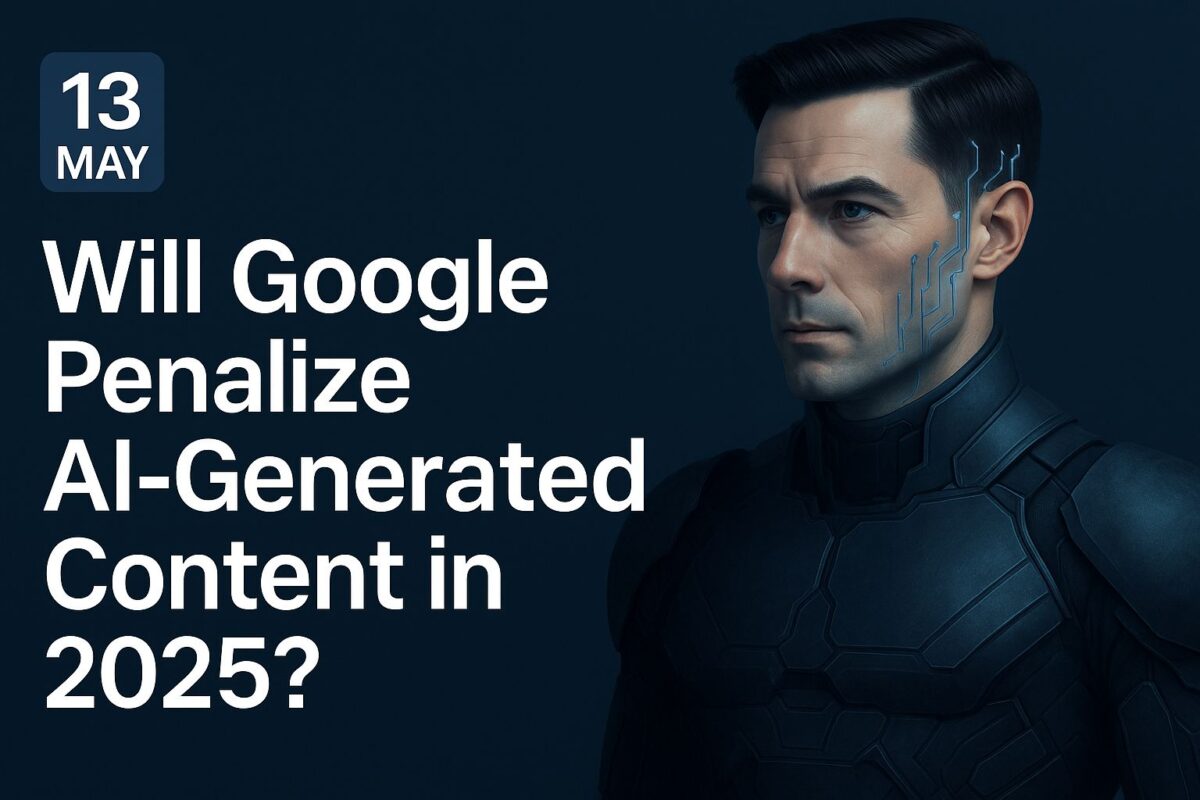Будет ли Google штрафовать контент, созданный искусственным интеллектом, в 2025 году? Что вам следует знать

Will Google penalize me for using AI-generated content?
Let’s explore the facts, myths, and best practices.
What Google Has Officially Said About AI Content
Back in early 2023, Google made it clear: they do not automatically penalize content simply because it was created with AI. What matters is the quality и usefulness of the content — not how it was written.
“Using AI doesn’t violate our guidelines. However, using AI to manipulate rankings or produce content primarily for search engines does.”
This principle still holds in 2025.
- High-quality AI content can rank well.
- Low-quality AI content, spammy or misleading, will struggle — just like human-written junk.
What Gets Penalized (And It’s Not Just AI)
Google doesn’t ban AI content. What it targets is unhelpful content. The following can get you in trouble:
- Keyword-stuffed paragraphs that offer no value
- Auto-generated pages with no human editing
- Thin or duplicate content created in bulk
- Pages designed to rank without solving a user’s problem
So, even if the content is 100% human — if it’s poor, it may still be penalized.
What Makes AI Content Risky?
While AI can help you scale fast, it also comes with pitfalls:
1. Lack of Originality
AI tends to repeat common ideas. If your competitors use the same tools, your blog may end up sounding just like theirs.
2. Factual Inaccuracy
AI sometimes “hallucinates” facts. You might get:
- Misstated laws or regulations
- Incorrect statistics
- Outdated data
Google’s algorithms — especially those focused on EEAT — can pick up signs of unreliable content.
3. Spam Signals
If your site suddenly publishes dozens of keyword-optimized posts that follow the same template, that’s a red flag.
Google’s spam detection (based on behavior patterns, not just keywords) can identify such manipulations.
How to Use AI Without Getting Penalized
AI is a tool. Use it smartly — not blindly.
✔ Add Human Oversight
- Review every post for tone, clarity, and facts.
- Personalize content to reflect your voice and brand.
- Use AI for speed, but always involve editing and judgement.
✔ Make It Helpful
Answer real user questions. Include:
- Examples
- Step-by-step instructions
- FAQs
- Case studies or personal insight
✔ Avoid Bulk Publishing
Don’t auto-post hundreds of AI articles overnight. Build gradually. Add value. Monitor performance.
✔ Diversify Your Sources
Use AI to draft, but reference:
- Authoritative sources (.gov, .edu, known media)
- Internal data (if you have it)
- Unique visuals or stats
✔ Use Tools That Focus on SEO + Quality
Some platforms like SurferSEO or NeuronWriter help structure content that aligns with what Google ranks — while AI writes it. Combine those with human touch and you’re on solid ground.
What About Google’s Helpful Content System in 2025?
Google continues to roll out updates under its Helpful Content System. It evaluates sites as a whole, not just individual pages. If your site is full of low-quality AI pages, even your good ones may suffer.
That’s why consistency matters:
- Avoid using AI for filler content
- Don’t create “noise pages” that have no real purpose
- Remove or rewrite underperforming content
Quality always wins long-term.
Myths You Should Ignore
Let’s debunk some common fears:
- “Google bans all AI content”
→ False. They rank AI content if it’s useful. - “You must declare AI use to avoid penalties”
→ False. There’s no such requirement. Google evaluates output, not the tool. - “AI content always ranks lower”
→ False. Some AI-written pages outperform human ones — when edited well and targeted correctly.
Final Thought: AI Is Not a Shortcut — It’s a Multiplier
AI can make you faster. But if you use it lazily, it can also multiply your mistakes.
If you focus on clarity, accuracy, value, и real user intent, AI is your ally — not your enemy.
